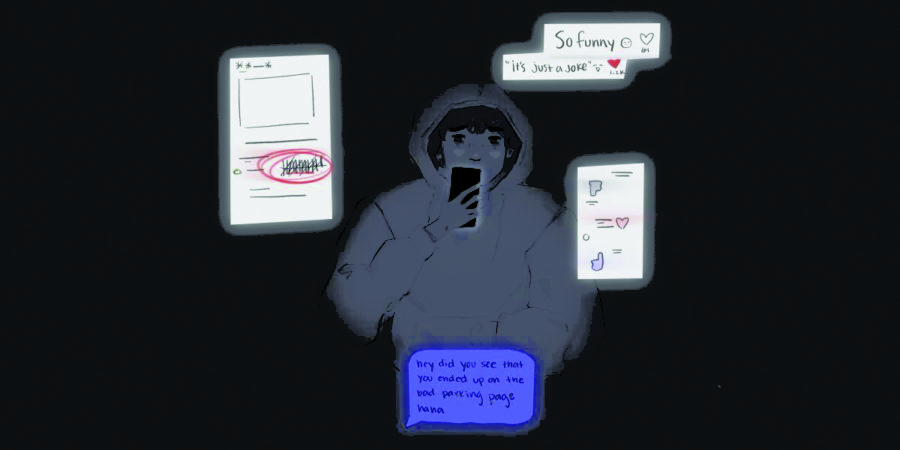Lack of social media privacy rights does not warrant non-consensual posts
The current generation of high school students has not only grown up around teen television shows such as Gossip Girl which showcase the dangers of social media, but it has also experienced the harrowing effects of copy-cat accounts which have popped up in their own circles along the way.
Since middle school, anonymous “shipping accounts” and “gossip” pages have surfaced to exploit same-age peers on the internet, chiefly on Instagram, which is notorious for its lack of accountability toward unwanted pages receiving reports, resulting in an unstoppable stream of discomfort members of the community cannot escape.
Without outlined technological or social media protections under the United States law for citizens — much less minors — young adults are left to inherit a landscape in which they are subject to online ridicule, fighting an intangible, unknown source simply to exist without the threat of their mistakes following them.
The highlight reel that is mainstream social media allows for any content creators to showcase the absolute pinnacle of their personality and looks, regardless of whether their platform is big or small.
If young, impressionable students are accustomed to viewing themselves and others on this pedestal of perfection, it is no wonder that these exposing pages garner so much attention. In a society surrounded by what seems to be constant performance, catching someone in an unfortunate sleeping position on their desk at school or learning about a scandal between two friends reminds the typical young adult that imperfection exists.
Though on some level this taste of human nature is comforting to the everyday individual, this does not stop any backlash or negatives which result from an unfavorable social media moment.
According to a 2014 study done by Igor Pantic, MD, PhD on Online Social Networking and Mental Health, “individuals with lower self-esteem are more active online in terms of having more self-promotional content on their [Facebook] profiles,” meaning that even the autonomous choice to appear on social media lowers self-esteem, much less a non-consensual appearance.
The opportunity for a more welcoming and healthy online relationship with ourselves and others lies in the hands of this generation, and without the threat of legal consequence from posting negatively about those around us, this is not necessarily a seamless task.
Through the commitment to a safer digital landscape and the consideration of others, however, it is possible.
Before posting content on any social media platform, consider whether the momentary amusement is worth sacrificing the wellness of those around you.

Charlie Trent is editor-in-chief and is a senior. It is her fourth year on staff. In school, she is involved in Chambers singers as Dance Captain and Choir...




